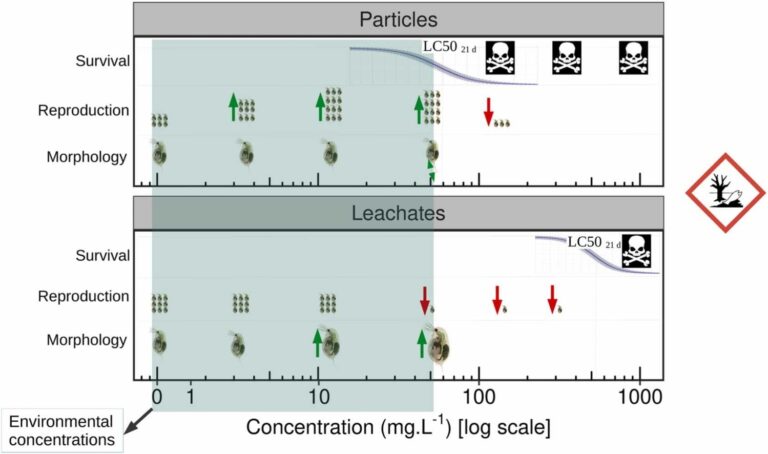New research from the UK’s University of Plymouth and the University of Exeter has revealed that plastic microparticles released into the environment from conventional road tires pose a pollution risk and should be regarded as a “high concern”.
The study, published in the Journal of Hazardous Materials, focused on the chronic toxicity of particles and chemical leachates from popular tire brands. The impact was tested on water fleas (Daphnia magna), which are small planktonic crustaceans.
Supported by funding from the Natural Environment Research Council, the study is part of the Tyre-Loss project, which investigates tire particles in the environment. Led by the University of Plymouth, the project brings together academics from the University of Exeter, Newcastle University and Plymouth Marine Laboratory. Also involved is an advisory group comprising 14 organizations including policymakers, tire/automobile/plastics/water industries and environmental charities.
The team found that, over a three-week period, pristine tire tread microparticles were more toxic (concentration being lethal for 50% of the population, LC50, is 60mg.L‑1) than chemical leachates alone (LC50 542mg.L‑1).
According to the researchers, the findings indicate that plastic pollutants from tires adversely affect the reproduction and development of water fleas, showing visible particle uptake in their digestive tracts. Analysis of tire leachates – the liquid passing through the tire material carrying harmful chemicals – saw a high presence of zinc, titanium, strontium and numerous organic chemicals. The scientists identified more than 50 of these chemicals – many classified as very toxic – across a series of popular tire brands.
Approximately 18% of tire tread particles, as the researchers report, reach fresh water, and 2% reach estuaries. The results suggest the particles were more toxic than the more commonly studied polyethylene microplastics to water fleas.
Prof. Richard Thompson, head of the international marine litter research unit at the University of Plymouth, leads the Tyre-Loss project and is a co-author of the new study. He said, “Our previous work has shown that road debris is a major source of microplastics in the environment.
“This new study is of key importance because it demonstrates the potential for harmful effects on an aquatic invertebrate species, at concentrations similar to those we have recorded near to roads in the UK. It is clearly an area we need to explore further.”
Read more TRWP updates here



